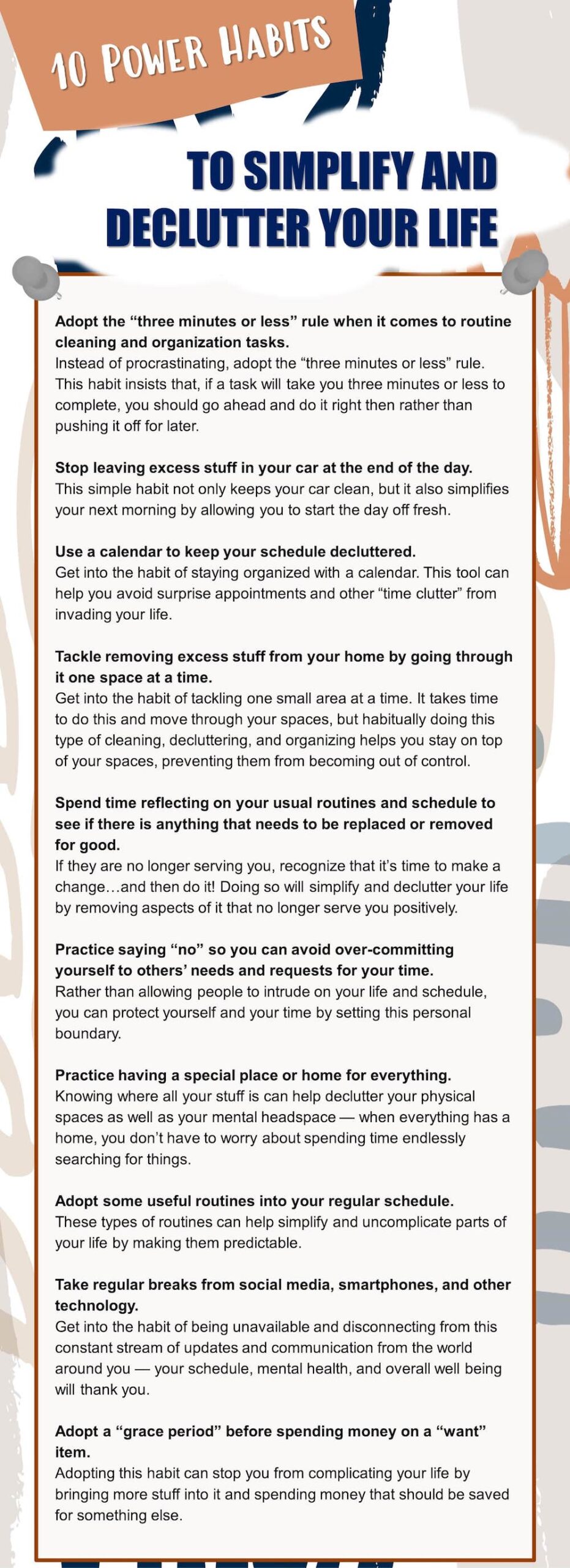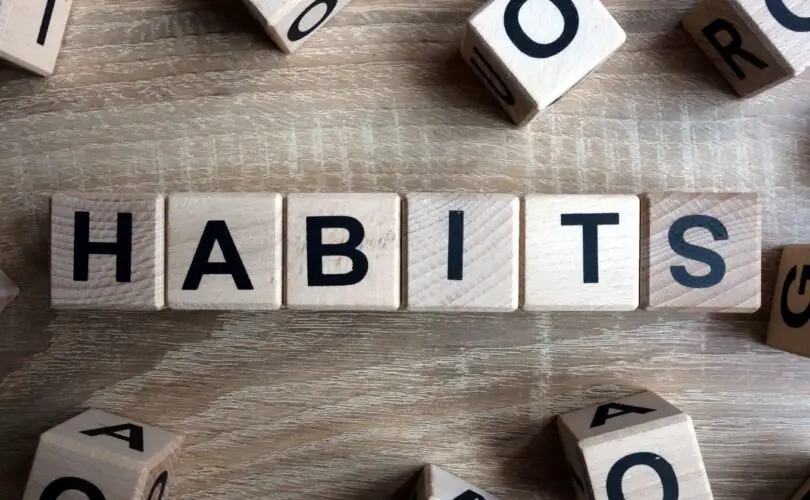Want to spend 2023 being more organized and clean? Look no further than these ten power habits you can incorporate into your life to keep your spaces (and whole fife!) decluttered, functional, and fabulous.
1| Adopt the “three minutes or less” rule when it comes to routine cleaning and organization tasks.
Are you a serial procrastinator? If so, you may allow little tasks to stack up against each other until you’re suddenly faced with a huge mountain of tasks waiting to be completed. Instead of procrastinating, adopt the “three minutes or less” rule. This habit insists that, if a task will take you three minutes or less to complete, you should go ahead and do it right then rather than pushing it off for later. Not only does this habit help you keep up with your household tasks, but it also ensures that you’ll clean up after yourself regularly.
2| Stop leaving excess stuff in your car at the end of the day.
One of the easiest ways to avoid accumulating excess clutter is to clean out your car at the end of the day. Rather than leaving food wrappers, clothes, empty cups, and other ephemera from the work/school day littering your car’s interior, make a point to remove all of it each evening so you can start fresh the next day. This simple habit not only keeps your car clean, but it also simplifies your next morning by allowing you to start the day off fresh.
3| Use a calendar to keep your schedule decluttered.
Many areas of life can become decluttered — not just your closets and cabinets! For example, you can develop a highly cluttered and disorganized schedule if you aren’t carefully keeping track of your appointments, tasks, and obligations. Get into the habit of staying organized with a calendar. This tool can help you avoid surprise appointments and other “time clutter” from invading your life.
4| Tackle removing excess stuff from your home by going through it one space at a time.
If the idea of decluttering and cleaning your entire home all at once feels overwhelming…it’s because it is! Instead, get into the habit of tackling one small area at a time. It takes time to do this and move through your spaces, but habitually doing this type of cleaning, decluttering, and organizing helps you stay on top of your spaces, preventing them from becoming out of control.
5| Spend time reflecting on your usual routines and schedule to see if there is anything that needs to be replaced or removed for good.
Are you sticking to your normal routines and schedules because they benefit you, or because they are familiar and comfortable? If you’re only doing certain things because you’ve “always done them that way,” it may be time to get into the habit of engaging in self reflection. Take time on a regular basis to review your habits, schedules, routines, and patterns. If they are no longer serving you, recognize that it’s time to make a change…and then do it! Doing so will simplify and declutter your life by removing aspects of it that no longer serve you positively.
6| Practice saying “no” so you can avoid over-committing yourself to others’ needs and requests for your time.
Learning how to say “no” to people is a powerful habit to develop. Rather than over-committing your time, energy, and resources to other people, practice saying “no” when someone asks something of you that is going to be too much for you to handle. Rather than allowing people to intrude on your life and schedule, you can protect yourself and your time by setting this personal boundary.
7| Practice having a special place or home for everything.
If you struggle with constantly misplacing items, get your personal spaces well-organized by designating a home for everything. With this method, you know exactly where everything should be because, once you’re finished using the items, you will return them to their specific “home.” You can do this by organizing your stuff into containers, bins, folders, or anything else that helps you designate special places for everything. Knowing where all your stuff is can help declutter your physical spaces as well as your mental headspace — when everything has a home, you don’t have to worry about spending time endlessly searching for things.
8| Adopt some useful routines into your regular schedule.
Having routines sometimes gets a bad rap. Implementing some useful routines into your day can help automate the “everyday” parts of life, taking a lot of the energy, effort, and struggle to keep things moving smoothly off your plate. For example, if you have a good, solid routine for preparing dinners during the work week or getting ready for bed, you don’t have to think too hard about what’s for dinner or whether you’re going to get enough sleep. These types of routines can help simplify and uncomplicate these parts of your life by making them predictable.
9| Take regular breaks from social media, smartphones, and other technology.
Get into the habit of routinely disconnecting yourself from social media, your smartphone, and other technology in your life. Doing so is a great way to “get back to basics” and make yourself temporarily unavailable. When people can constantly connect to you via call, text, email, direct message, and more, life can begin to feel very overwhelming. Get into the habit of being unavailable and disconnecting from this constant stream of updates and communication from the world around you — your schedule, mental health, and overall well being will thank you.
10| Adopt a “grace period” before spending money on a “want” item.
Whenever you find yourself graced with a little extra cash, try to hang onto it for a few days before spending it on something you’ve been wanting. Giving yourself this little “grace” period is an excellent way to determine if you really, truly want that new item…or if you’re just feeling tempted by an impulse buy. Adopting this habit can stop you from complicating your life by bringing more stuff into it and spending money that should be saved for something else.








